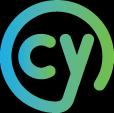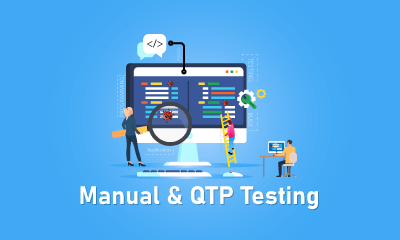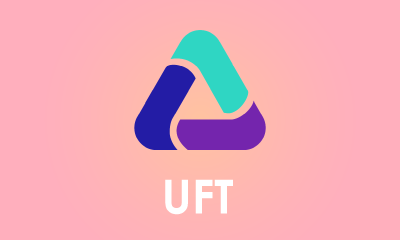- Home
- Blog
- Automation Testing
- Testcafe vs cypress

Selenium is a standard in the toolset of the modern tester because automation testing is now a necessary component of QA lifecycles. It's not the only participant in the domain, though, by any means.
There are now several frameworks available for test automation, including Cypress and TestCafe. In reality, the term SPA ("Single Page Application") has recently become popular in testing circles. Although SPAs are supported by earlier testing frameworks, tests are frequently unstable and challenging to manage.
The need for the current test automation framework to evolve along with modern applications became apparent. Naturally, QAs may now choose from a variety of tools for running automated tests.
Testcafe vs cypress - Table Of Contents
- What makes Testcafe and Cypress Comparable?
- TestCafe
- Cypress
- Pros and Cons of Testcafe
- Pros and Cons of Cypress
- Testcafe vs Cypress - Comparison
What makes Testcafe and Cypress Comparable?
Both Testcafe and Cypress are well-liked automation tools and contemporary applications, and they have a lot in common. If you're seeking for Selenium alternatives since Protractor left the market, it's worth checking into new, trendy frameworks like Cypress and Testcafe.
Despite the fact that Testcafe and Cypress are both rather new, they have developed over a few years and now contain a lot of features. Architecture-wise, TestCafe executes the actual test code in Node, whereas Cypress does it in the browser. This means that while TestCafe requires serialised communication between the DOM and tests. Cypress tests have access to actual DOM elements.
What distinguishes TestCafe from Cypress, and which is the finest test automation tool, is a commonly asked question in this context.
The solution comes in examining and contrasting the two instruments' most significant differences and similarities.
TestCafe
![]() JavaScript test automation based framework which is an opersource framework called Test Cafe is based on NodeJS. Selenium Webdriver or any other third-party technologies are not used by TestCafe to execute tests. It utilises the browsers a tester already has and is built on the well-known Node.js technology.
JavaScript test automation based framework which is an opersource framework called Test Cafe is based on NodeJS. Selenium Webdriver or any other third-party technologies are not used by TestCafe to execute tests. It utilises the browsers a tester already has and is built on the well-known Node.js technology.
Although it may be used for API testing as well, TestCafe is primarily used for end-to-end testing.
Javascript is a programming language used by Testcafe to create tests. It has a unique collection of assertions, and test scripts may be made using those assertion libraries. Assertion libraries from outside sources are not supported out of the box.
The NodeJS runtime executables must be installed in order to run scripts because TestCafe is based on NodeJS. Unlike Cypress, Testcafe doesn't open a separate window for debugging, but it does offer the Live Mode option, which is typically adequate for debugging.
Cypress
 An open-Source test automation framework based on NodeJS and JavaScript is known as Cypress.
An open-Source test automation framework based on NodeJS and JavaScript is known as Cypress.
It is designed for the contemporary web and tries to overcome the challenges that software engineers or developers encounter when application is being tested. Cypress is a user-friendly tool for developers that operates in the browser directly and makes use of a cutting-edge DOM modification method. Additionally, it offers a distinctive test runner which is interactive
In comparison to Testcafe, Cypress is basically constructed using architecture which is different. It supports several testing kinds, including
- Integration Testing
- End to End Testing
- API Testing,
- Unit Testing
Since Cypress is application based on NodeJS, runtime executables of Node must be present on the system in order to utilise it. Cypress tests are written in JavaScript.
| Enrol in our Cypress Training and Certification Course today and develop a strong foundation in Cypress. |
Why are TestCafe and Cypress Gaining Popularity?
Native JavaScript test frameworks like TestCafe and Cypress have all been developed recently. As their capabilities grow, they are all growing in popularity among developers. Native frameworks have the benefit of being written in JavaScript, which many developers find to be more readable, and of running locally on the user's computer rather than remotely, as Selenium does.
Due to their close browser integration, network mocking/stubbing, simulating network capabilities and resolutions, and nice features like built-in waits and test reruns, they are developer-friendly and can reduce flakiness.Depending on your testing requirements, both of these free source frameworks has its own benefits and drawbacks.
Pros and Cons of testcafe vs cypress
Pros and Cons of Testcafe
Pros:
- Fast and Stable: The tests are faster compared to other frameworks because they are run inside a browser. Due to internal JavaScript event simulation, tests are also more reliable.
- Parallel Testing: Concurrency option enables parallel execution of TestCafe tests.
- Super Easy setup: Setting up TestCafe is simple and quick. Anyone with a rudimentary understanding of how to do it yourself.
- Cross Browser Testing: Testcafe supports every major browser, including Firefox, IE, Edge (both old and new), and the entire Chrome family.
- iframe Support: Iframes are supported by Testcafe, and users can switch between them when running tests.
- Screenshots: Using its built-in screenshot commands, TestCafe supports taking screenshots of tests.
- Writing Easy Test Script: Teams are more productive when using TestCafe approaches related to command chaining. Other frameworks' 20 lines of code can be produced in just 10 to 12 lines utilising the TestCafe syntax.
- Support for Multiple Tab: In contrast to Cypress, Testcafe offers features like support for multiple tab and window switching.
- Debuggability: For simpler debugging, Testcafe offers Live Mode, which makes it easier to see specific browser operations.
- Automated Waiting: TestCafe automatically waits for items to show up. It is not necessary to provide External Waits.
- No dependency on third-party: TestCafe is independent of any external jar files, webdriver, or other third-party libraries.
- Mock Requests: To feed test data to an app, diagnose network issues, and evade downtime, use TestCafe to simulate HTTP responses.
Cons:
- Execution of Tests: Browsers are unaware that they are in test mode when they are operating. Therefore, automation control may be compromised in some edge scenarios. Debugging potential problems is also fairly difficult.
- Assertion Libraries: Only built-in assertion libraries are supported by TestCafe.
- Programming Language: Only the Typescript/ Javascript programming languages are supported by Testcafe.
- Selector Support: Only CSS selectors are supported by TestCafe by default.
| Related Articles: "Katalon vs Cypress" |
Pros and Cons of Cypress
Pros:
- Testing of Cross browser: The Chrome family of browsers, New Edge, Firefox, and Cypress all support conducting tests.
- Time Travel: While tests are running, Cypress runs in its own window and captures snapshots. In the Command Log, you may hover over commands to see exactly what occurred at each stage.
- Consistent Results: Since Cypress employs its own browser control approach, it is comparably quicker, more stable, and allows for flake-free tests.
- Debuggability: Direct debugging from Developer Tools is supported by Cypress. Debugging is quick and effective when mistakes and stack traces can be easily read.
- Screenshots and Videos: On failure, screenshots are immediately taken. When run via the CLI, the full test suite can be recorded.
- Network Traffic Control: Edge situations can be easily controlled, mocked up, and tested without affecting the server. As needed, stub network traffic.
- Automatic Waiting: Testers are not required to submit Explicit Wait in Cypress. Cypress automatically waits for instructions and claims before continuing. The async hell is over.
- Spies, Stubs, and Clocks: This function makes it easier to check and manage how functions, server replies, or timers behave.
Cons:
- IFrame Support: There is little iframe support for Cypress.
- Programming Language: Only Typescrip/JavaScript is supported by Cypress as a programming language.
- Selector Support: Only CSS selectors are supported natively by Cypress, although there are third-party packages that can be plugged into Cypress to use XPath.
- Native Mobile Apps: Automation for native mobile apps is not supported by Cypress.
- Parallel Test Execution: Cypress does not provide concurrent testing on one or more browsers.
- Assertion Libraries: Only Mocha and Chai assertion libraries are supported by Cypress. But for the majority of test scripts, these are adequate.
- Single Origin Tests: Tests cannot be created with various sources or URLs. It must adhere to single origins at all times.
- Multiple Tab: Multiple tabs and toggling between Parent and Child windows are not supported by Cypress.
Testcafe vs Cypress - Comparison
| Testcafe | Cypress | |
| Premium Features | TestCafe Studio | Cypress Dashboard |
| Support for iframe | Supports iframes | Limited Support for iframes |
| Setup Difficulty | Easy. Install the Node packages, then begin writing programmes. | Easy |
| Supported Browsers |
|
|
| Assertion Libraries | Built-in assertion libraries | Mocha, Chai |
| Multiple Window / Tab Support | supports numerous windows and tabs | No native support for numerous windows or tabs |
| Debuggability | Shay Banon released Elasticsearch in 2010. Since it is an open-source programme, there are no fees associated with using it. It is available for free download and installation from the company's website. | Nicolas and Julien published Algolia in 2012. Along with a number of premium features, the Algolia community offers a 14-day free trial. The first 10 units of building searches are free. |
| Upload a File feature | Supports file upload | With the use of third-party libraries |
| Documents & Community Support | Good documentation, community support is less compared to Cypress | Well written documentation, growing community |
| Concurrent/Parallel Browser Testing | Allows for simultaneous browser testing | just one browser session at once |
| Reporters | Default reporter is Extendable Junit list, Spec, minimal, xUnit, Json and community supported custom reporters | Default Reporter is Extendable Junit, Spec, Mocha supported reporter and custom reporters |
Conclusion
Although both Testcafe and Cypress are cutting-edge testing frameworks with a wealth of functionality, they each offer advantages and disadvantages of their own. Regarding performance and architecture, they vary greatly. Instead of simply moving to one of the frameworks, gather the organisational needs for test automation and compare each framework to those criteria before selecting the best one. Both frameworks are well-liked and have advanced significantly from their beginnings, making them both respectable options.
 On-Job Support Service
On-Job Support Service
Online Work Support for your on-job roles.

Our work-support plans provide precise options as per your project tasks. Whether you are a newbie or an experienced professional seeking assistance in completing project tasks, we are here with the following plans to meet your custom needs:
- Pay Per Hour
- Pay Per Week
- Monthly
| Name | Dates | |
|---|---|---|
| Cypress Training | Feb 21 to Mar 08 | View Details |
| Cypress Training | Feb 24 to Mar 11 | View Details |
| Cypress Training | Feb 28 to Mar 15 | View Details |
| Cypress Training | Mar 03 to Mar 18 | View Details |
















